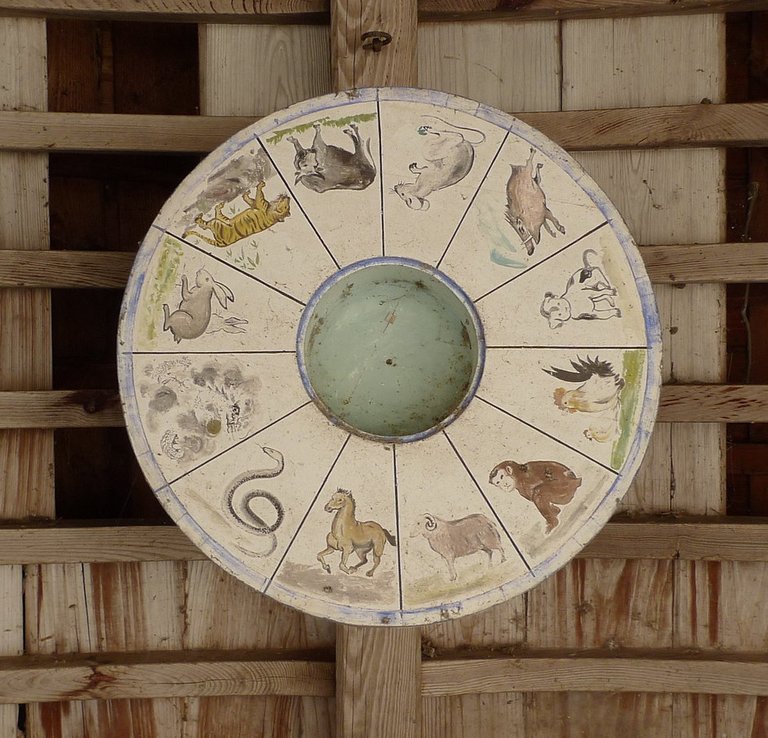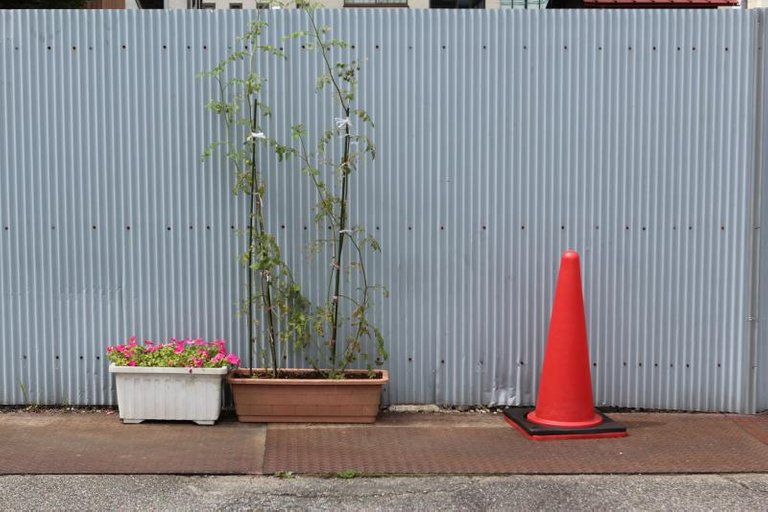Recently @livinguktaiwan wrote a bit about the idea of early retirement. Ah, the dream. Now today I came across this post from Nippon.com about the retirement age in Japan. So with it on my mind, let's see how long I can write on the topic.

The retirement age in Japan is 60. I don't know why 60 was chosen exactly. It may have something to do with in East Asian countries 60 is a special year, marking a rebirth of sorts. In Japan it's called kanreki (還暦) and marks the return to the same sign of your birth. In the West most people are familiar with the 12 animal year cycle of the Asian zodiac, but there is more to it than that. There are also five elements—earth, fire, metal, wood, and water—and these together make a 60-year cycle. Using myself as an example, I was born in 78 which was an earth horse year. The next time an earth horse comes will be in 2038 which will be my kanreki year.

Photo by isado
Anyway. In the past everyone retired at that age, but some people got part time jobs or even different full-time jobs. Some did it for the money, but others did it because they figured out retirement was boring and they wanted something to do. It seems like the trend has continued and the story I just read (again, linked above) talks about how now the number of people who work past retirement has gone up to 66%. Of those, it seems like the most common arrangement is to become a contract employee, presumably with a new company but it doesn't break that down. A large number of them seem to be given worthless jobs of directing foot traffic around orange cones...

Photo by Carsten
(Seriously. A lot of old men are assigned jobs by the city of directing people around orange cones. The city knows it's a worthless job, but it gives the old people something to do and a little money. Kind of charity in a sense.)
There has been talk of raising it from 60 for a long time. There was a JapanTimes article a month ago that said they finally did raise it for civil servants. This year it will become 61 and then it will go up another year every two years until it reaches 65. Here's that story.

Jumping to America where I am from, the retirement age is 67, but (as always) there is talk of that moving up. As in Japan, many people keep working after retirement, usually not guarding pedestrians from orange cones as in Japan, but as greeters in supermarkets and other mindless jobs. Some do keep doing their own thing. My dad, for example, is 74 and is a stock broker and financial advisor. He loves talking to his clients and loves doing his day-trading and has announced that he will be working until the day he dies.
My dad could actually afford to retire if he wanted. He has more than enough money in the bank (and in BTC) to live very comfortably. He continues work because he enjoys it. Most people, however, don't have that option and they continue because their pension isn't high enough and they never saved for retirement so they need to continue working for the money.

Most people's retirement savings - Image by Steve Buissinne from Pixabay
So all this in mind, I ask myself about how it will be for me.
I like to tell people that crypto is my retirement. I don't trust the pension in either country will be there for me in 20 years. If it is—bonus. But I'm not counting on it. That in mind, when I buy crypto I'm not looking at getting rich tomorrow and retiring early. I mean, that would be really cool if it did happen. It'd be really nice to finally for the first time in my life be able to not worry about money and just enjoy living. Travel a bit maybe. My wife would love that.
But I am not gambling a lot of money on those big plays and am instead eyeing slow growth that will give me a nice nest egg both to support myself and my wife in retirement but hopefully also be able to help our kids out in going to university or buying their first house. We don't really have blue-chip cryptos, but in the world of crypto BTC is relatively stable in comparison to most of the alt coins. Of course we have stable coins too like HBD, which is not only stable but offers remarkable growth potential with the 20%.
I definitely see my dad's point of view too. I enjoy writing, and in doing research on things like haiku and then writing about it. So "retirement" for me would just mean transitioning away from my "real job" (or jobs, in this case) and into doing Hive full-time. Spending my time on Hive would be a great retirement job.

How about you guys? What's the retirement age in your country? Do most people keep working past that age? How about you: what are your plans? Let me know in the comments.
(title graphic made by me in Photoshop using this image by MonikaDesigns from Pixabay)
❦
 |
David LaSpina is an American photographer and translator lost in Japan, trying to capture the beauty of this country one photo at a time and searching for the perfect haiku. |





